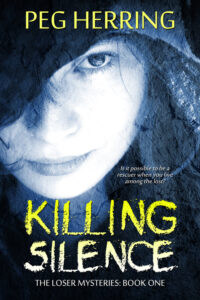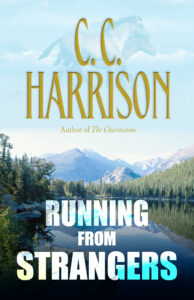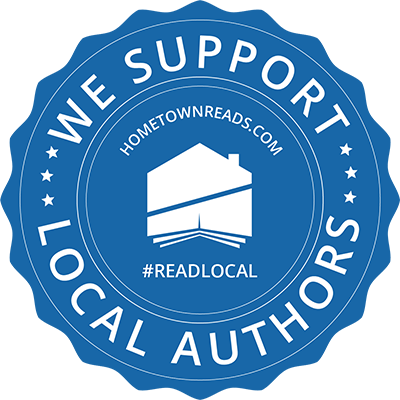Photo of the Week: Your characters are walking along the sandy beach and come across something in the sand? What is it? How do they respond?

E.Tip of the Day: Lately, I’ve been hearing a lot of concerns from writers about how hard it is for them to stay motivated to write. Having that urge to put forth great stories and strong characters continuously can be daunting at times. Asking for help can be even tougher. Writing is a lonely occupation after all. Or is it?
Yes, writing can be lonely but it doesn’t have to be. If you’re struggling with getting words on the page for a week or two, or more, let us know. We’ll help motivate you to getting the right words on the page again. That’s what we’re here for. That’s part of the reason Written Dreams was formed. 🙂
Motivation to some people can be a no-brainer. If you want to do something, than do it. Clear. Concise. And to the point. No complaining. No wondering. Task complete. Simple, right?
No, not quite. Writing is a craft, and with every craft comes the need for creativity. Without that creativity you end up having a flat, life-less story. But, what most writers don’t realize is it’s okay to have a little flatness. It’s okay to write something horrible. It’s okay to stay on the page typing random letters and numbers once in a while. And it’s okay to write something that you will toss out later. Because the important thing here really, is that you’re writing–whether it makes sense or not every day is not important. If you have to get through a few hours of writing a story of silly, random made-up words, you might look at the screen and think you’re nuts. You’re not nuts. Really, you’re not. And just the act of writing something unconventional will motivate you. Try it, and see. 🙂
If you’d like more info on our Coaching services, please see the Coaching Tab on our website under Services. We’re happy to help in any way we can with furthering your writing career! 🙂
Today we welcome author, Peg Herring, to The Editing Essentials! The first book of Peg’s I read was MacBeth’s Niece, a very enjoyable story. Thank you, Peg, for joining us today!
 Peg Herring is the award-winning writer of three series and several standalones. A former educator, she lives in Michigan with her long-time husband. They often go traveling, much to the disgust of their cats, Trouble and Alice, who are left at home to guard the place. Visit Peg’s website at http://pegherring.com or her Amazon page, Amazon.com: Peg Herring
Peg Herring is the award-winning writer of three series and several standalones. A former educator, she lives in Michigan with her long-time husband. They often go traveling, much to the disgust of their cats, Trouble and Alice, who are left at home to guard the place. Visit Peg’s website at http://pegherring.com or her Amazon page, Amazon.com: Peg Herring
As a writer of three series, with nine published books and two more on the way, I’d like to address five writing questions people ask at my workshop, “Write, Edit, Publish!”
1. “I have a great story idea, but I can’t get started.” (or “I can’t get past the first three chapters.”)
It’s hard to write a book. Really hard. On the other hand, it’s easy to let storylines float through your head, where every idea seems interesting, workable, and compelling. It’s only when you try to write them down that you realize it won’t work.
So lots of people have great story ideas, but only a few write those stories down. It might be that you really don’t want to write a book; you just want to say you’re a writer.
If you are willing to do the work, great–now apply the BITCH principle: Butt In The Chair, Honey! Thinking about your book, talking about your book, even outlining your book isn’t the same as WRITING your book. Set a time each day to work. Any active writing is better than that filmy wisp in your mind.
If (when) your progress stalls, do something else for a while, but then make yourself go back to work. It might not go well. You might even have to toss a day’s work (or two or three), but you must actively write rather than letting yourself imagine that point in the future when it will all flow seamlessly from your fingertips. Ain’t gonna happen.
 2. “I’m three-quarters done, but I don’t know how to end the book.”
2. “I’m three-quarters done, but I don’t know how to end the book.”
We sometimes call that the Muddle in the Middle. You’ve got so many strands going that you don’t know how to weave them into a whole. Again, the only thing to do is finish it. For me, writing the ending clarifies what has to happen in the middle. “Oh!” I say to myself. “A paragraph on page 92 will clear that little knot up nicely.” And it does, but only when I’ve seen how the whole thing resolves.
3. “I finished my book, and my mom likes it. How do I know if it’s really good?”
Don’t trust Mom; she loves you too much. In fact, don’t trust the opinion of anyone you know. (You might ask, “Will you give me ten bucks to read my manuscript?” That separates the wheat from the chaff!) It’s easy for friends and family to gush, “Gee, that’s great! You should publish.” When there’s no investment required, almost everyone will say nice things. It makes you happy.
My first advice for judging the quality of your own work is wait time. Let a manuscript rest for a few weeks and then go back to it. Often your reaction will be, “What was I thinking?”
I always read the manuscript aloud or have my computer read it to me. My ears find lots of things needing attention that my eyes didn’t see.
I read each of my manuscripts many times. One reading assures that I’ve included at least one non-visual description on each page. It’s easy to tell what things look like, but what do they sound, taste, feel, and smell like? That adds depth to your description and interest to your writing.
4. “What’s different about writing mystery?”
Mystery requires everything other types of writing require AND a puzzle for the reader to figure out. Mystery authors walk a fine line, tossing in clues to the solution while trying not to give away too much. A reader’s reaction upon finishing a mystery should be, “I didn’t guess the killer, but I should have.”
The modern mystery has lots of elements: suspense, romance, history, paranormal, occupational info, police procedures, and even crafting trivia. The writer needs to enlighten her readers without obscuring the mystery with facts, anecdotes, and quilting details.
 5. “How do you keep yourself interested when writing a series?”
5. “How do you keep yourself interested when writing a series?”
Aha! This is where I get to tell you about my work! I have a historical series with Five Star Publishing set in Tudor England (next book, THE LADY FLIRTS WITH DEATH, May of 2013).
My Dead Detective Mysteries (LL-Publications) are mildly paranormal, meaning some characters are dead (no drooling zombies). THE DEAD DETECTIVE AGENCY won EPIC‘s best mystery of 2012.
The new series, The Loser Mysteries (also LL), begins in November with KILLING SILENCE. Loser, a homeless woman, is haunted by her past and endangered by her present as she tries to help a young father accused of murder.
How do I keep three series from driving me crazy?( I often don’t!) Some things I’ve learned to do help: first, I work on one book at a time, whether writing or editing. I attack whatever’s most pressing and put other projects aside until I’ve finished it.
Second, I keep notes on what the characters look like, drive, eat for breakfast, etc. It doesn’t do to say Loser hates oatmeal in one book and then have her order it in a restaurant in the next.
Finally, I have in mind the general arc of the series before I begin, with an idea of how many books it will entail. The Dead Detective Mysteries is a five-book series, following the adventures of Seamus, who resolves problems he faces while helping others solve theirs. Seamus’ story weaves through the series, so the solution to the mystery in each book is only part of the reader’s enjoyment of the larger story.
That’s a little of the advice I give writers. If you have a specific question or a comment on something that works for you, I’m ready to listen.
Thanks, Peg, for the great tips! If you have a question or comment for Peg, she’ll be with us all day. Thank you!
Inspirational Photo of the Week: Put your character on a back porch watching the thunderstorm from the safety of their home, or in a vehicle trying to get somewhere. What is their reaction? Are they afraid? Do they enjoy the sweet smell of rain? Do they have something outside that will be drenched and ruined? Show the emotion of what they’re feeling as they feel the storm around them. Writing from inspiration can sometimes be an easier way to get into the mood of writing. Good luck!

Today we welcome mystery author, C.C. Harrison. I first met C.C. a few years ago when we worked together on her novel, Running From Strangers, a 2009 National Reader’s Choice finalist. She is a kind woman and a wonderful friend. Please help me in welcoming her to The Editing Essentials as our guestblogger today!

C. C. Harrison lives in Anthem, Arizona. When she’s not reading, writing, or working out at the gym, she can be found in the mountains of Colorado or in some far-flung corner of the Southwest.
 All authors are advised to write what they know. But how many of us know very much about anything outside of our ordinary lives? How many of us know anything interesting enough to carry a book through 90-100,000 words? Well, I’ve discovered the novelist’s secret—RESEARCH! So I say change that advice to write what you can research.
All authors are advised to write what they know. But how many of us know very much about anything outside of our ordinary lives? How many of us know anything interesting enough to carry a book through 90-100,000 words? Well, I’ve discovered the novelist’s secret—RESEARCH! So I say change that advice to write what you can research.
The benefits of research are many.
– Lends authenticity, realism and flavor to your story
– Adds little known details that can enhance your story
– May discover entirely new plot elements that deepen and solidify your story, or important details and facts that affect the trajectory of your entire book
How much you research depends on how much you already know about your topic, and how complex your plot is. In most cases, your research will happen in stages during the development of your story.
Begin when your story idea hits. Build your foundation with general information. Gather contacts, professionals who can help you later with details. At this stage, information will come to you in surprising ways. Once you have the idea for your book, information and research sources will fall into your lap. Your mind will automatically pick up information, you’ll notice newspaper and magazine articles, TV news items will jump out at you, you’ll meet just the person who has the information you need.
During the outline stage, you’ll have a good idea what you will need to research in more detail later on. Make a list. During the actual writing, you’ll want to seek answers to questions and fill in details as your scenes unfold.
IMPORTANT SOURCES OF INFORMATION
Internet – For a writer, this is the most valuable tool next to the computer itself.
Libraries – Local, big city, university. Many are online and available at no charge. Small town and regional libraries are excellent places to find locally written books, and newspaper clippings with information of local interest.
Used Book Stores – Out of print or small press books, and other treasures can be found here.
Museum Book Stores – Also full of treasures.
Historical Societies – Especially in small towns. Great source for books, photos, diaries, journals, logs, and valuable first person historical accounts. Visit, call, or email through their website.
Footnotes and bibliographies – Check the list of sources at the back of the book you are using for research.
Network With Clubs and Professional Organizations –Join or attend conferences, seminars, meetings. Excellent opportunities to gather information and meet experts in a particular field. Get on their email list. I belong to several email groups – private investigators, law enforcement, self-defense, hand to hand combat and survival instructors to name just a few.
Telephone – Call professionals/experts and ask questions. Most law enforcement departments and big companies have media relations or public affairs departments. Just ask when you call, and have your questions ready. Most will be flattered to be used as a source. Always ask for an email address for follow up questions. That way you will have your answer in writing and not make a mistake or misuse the information.
Law Enforcement – Check Amazon.com for law enforcement books. Also, Paladin Press website. You’ll find books on military and police science, i.e., firearms and weapons, self-defense, SEAL sniper training, KGB Training Manual, and so on.
Also, go on a Ride Along with local law enforcement; take a Citizen’s Police Academy course (I learned that one million dollars of used bills will fit into a pillowcase.) Develop law enforcement contacts such as sheriff’s deputies, detectives, etc. They are usually quite happy to speak with novelists.
Time Line Books and Websites – Outlines sequence of historical events, often with photos.
Children’s Books – Check the children’s section in bookstores and libraries. Some very good basic information on all kinds of topics.
Government Websites – FBI, CIA, Secret Service, Marshal Services, Witness Protection Program, National Security, Homeland Security website, and Department of Defense, etc.
Idiot’s Guides and For Dummies books – On just about every topic imaginable.
Honor the privacy of your sources. If someone gives you his or her private email address or home phone, do not give it out to anyone else without their permission. Give them credit. Ask if you can thank and acknowledge them by name in your article or in the front matter of your book. Above all, show gratitude. Send a thank you note (email is okay), and if their contribution was major, send them a copy of the published piece.
IMPORTANT TOPICS TO RESEARCH
Geographic/Regional – Visitor and Convention Bureaus, travel sites, travel books (Fodor’s, for example) tourist guides and brochures, etc.
Occupations – Vocational Biographies, and other career reference books carried by most libraries and high school/college placement offices. Mostly online now.
Clothing – Period fashions, uniforms (military, medical, job specific.) Find in books and museums.
Food – Regional, traditional, Victorian, Medieval, etc.
Language/slang/occupational or scientific terminology – Make sure your character speaks using appropriate language. Your cop should speak like a cop, your lawyer like a lawyer, your quilter should know specific language of people who make quilts.
Guns/Weapons/Explosives – Gun manufacturer websites, NRA, police and law enforcement blogs, police equipment websites, etc. (I once had to know how much a police officer’s duty belt weighed.) Attend gun shows and ask questions.
Geology – Describe landforms, seascapes for sense of place. Use the right words. I have geology reference books.
Weather – Storms, describe skies, sunsets, sunrises. I have weather and sky books.
Don’t get too attached to your research, or go off on tangents. It’s easy to do if you are a history or research fanatic. And don’t get distracted. Stay focused on information that pertains specifically to your novel.
You might be tempted to put all your research into your story, but don’t. Only use the information for flavor unless you are writing a “historical” novel which will require you to be totally accurate. Unless you are writing for historical correctness, don’t sacrifice your story for the research. For most writers, story wins out over research every time. Keep your research records especially if you are going to write other novels set in the same period or location.
Readers like books with a realistic sense of place, but how do you realistically set a book in a place, especially a well-known location, without actually going there? Here are some tips:
Have Your Story Character Be New to the Area – Set it up so that your main character has recently moved to the city/town, so he or she won’t know much about it.
Read Books Set in the City – You can Google search for lists of books set in a certain locale.
Watch Movies Set in the City – Use Google/Bing searches for this, too. Internet Movie Data Base (IMBD) is a good search site.
Contact Tourist and Convention Bureaus – Call or email with questions, ask them to send you brochures, pamphlets, travel kits, whatever they have.
Local Police and Fire Departments – Call or email the Public Affairs Officer or Department with specific questions.
Get Maps – MapQuest, AAA, or buy from a retail map store.
Look at the City’s Internet Site – This will give you information on places of interest, restaurants, theaters, schools and universities, and give you some idea what it’s like to live there. Also, search for blogs about living in that city or locale.
Ask Friends or Family Members – Call anyone you know who lives there.
Online Webcams – Cities often have live webcams active on intersections, or other places of note in the city.
GOOGLE EARTH – You will be amazed how down to earth you can get in a city using Google Earth.
Good luck, and have fun!
Thank you, C.C., for joining us today. If you have questions or comments for her, she’ll be with us all day. We hope you enjoyed this post and will share it with other writer friends who will find it helpful. Thank you!🙂
E. Tip of the Day: Why do readers enjoy learning about the characters we write about? Simple Answer: because they can relate to them. Each of us has our own individual battles we face every day, and escaping into a different world is far easier than facing our own battles some days.
What type of character do readers want to read about? A strong character. A believable character. A character they’ll want to trust and love. Someone who will inspire them, fight for what they believe in, and make them smile. Readers want a character they can cheer for. Someone they could enjoy a cup of coffee with at their kitchen table if that character was standing right in front of them.
So, what are you waiting for? Go write about a strong character that will sweep your readers off their feet!
E. Tip of the Day: Time Management Skills With a Smile. Start your writing time happy to dig into the character’s lives. Not to get away from your own life, but to create something really beautiful.
In today’s world we have so many things pulling us in different directions. Sometimes time alone can make us feel guilty for not spending time with our families, friends, or doing those things that we keep putting off. To spend any time pampering yourself, or doing something selfish like writing for hours at a time seems selfish.
Well, writing is selfish, isn’t it? But it’s also this wonderful gift so few people have the talent to do. It’s something so many people wish they could do. So, instead of feeling guilty, dear writer, start feeling grateful.
Don’t get upset with yourself for taking this time to write. YOU deserve it. You’ve worked hard to get to where you’re at, and it’s okay to take a few hours for yourself and write. Relax. Smile. Feel excited that YOU are a writer. Don’t beat yourself up when you only have 10 words on the page after an hour. It’s okay. That happens. Instead of beating yourself up, believe in yourself. Look in the mirror and tell yourself you deserve this career. You are determined to finish the writing project you are working on, and IT WILL NOT BEAT YOU. You can do this!
It’s important to me to keep a positive attitude. Every day I wake up with a smile on my face so excited to start the day’s work. I love being an editor. It is a pure joy for me to have this career, and to have the opportunity to work with so many talented writers. To me, every day is a blessing. I admit I’m not happy every minute of every day (I have three teenagers after all!), but I try to be. 🙂
It’s one of the things I see daily in my husband; his positive attitude is simply amazing. No matter how much pain he’s in, or what worries he has on his plate, he always remains positive. Doom and gloom is not part of his vocabulary. Doom and gloom only makes you feel worse anyway. And who wants that? Being happy, grateful to be the writer you are, will make the day go faster. You won’t be dreading having to write the next word on the page. You’ll be looking forward to it! 🙂
Today our guest is author, Nancy Gotter Gates. I first met Nancy a few years ago when I edited her novel Sand Castles. I was touched by Nancy’s characters, and their real-life struggles. I was thrilled when we were able to work together on her next novel, Life Studies! Welcome, Nancy, to The Editing Essentials.
Nancy Gotter Gates is the author of seven mysteries and three women’s fiction novels. Sand Castles, Life Studies and The State of Grace are stand alone novels featuring women in their fifties and sixties. Her mysteries include the Emma Daniels series set in Sarasota Florida, the Tommi Poag series set in Greensboro North Carolina and her newest, The Glendon Hills Retirement Center series, set in “Guilford City” North Carolina. She has also published numerous articles, poems and thirty short stories. Nancy lives in High Point North Carolina with her cat Callie. Visit her website at: http://www.nancygottergates.com/
 Many mystery writers look for unusual backgrounds and quirky occupations for their protagonists to set themselves apart from others in the crowded field of cozy mysteries. I understand completely. If you’re not writing police procedurals or thrillers filled with spies, government types, or special agents, it’s hard to make one’s protagonist stand out from the crowd. However, I take a different tack. I prefer to write about everyday women, working in an ordinary job or retired, who happen to stumble upon a dead body and feel compelled to track down the killer. I feel the reader can identify with her because they have everything in common. She is not an expert in ancient languages or a famous chef or a biker. She is the woman next door, or in your book club. All of my protagonists are women of baby boomer age, some retired, some not. All are middle-class average housewives or office workers who stumble onto crimes that shock and appall them and are driven to find the perpetrator. Even though they have little knowledge of police procedure or access to crime labs and specialists, they manage to find the guilty party through passion, hard work, and determination.
Many mystery writers look for unusual backgrounds and quirky occupations for their protagonists to set themselves apart from others in the crowded field of cozy mysteries. I understand completely. If you’re not writing police procedurals or thrillers filled with spies, government types, or special agents, it’s hard to make one’s protagonist stand out from the crowd. However, I take a different tack. I prefer to write about everyday women, working in an ordinary job or retired, who happen to stumble upon a dead body and feel compelled to track down the killer. I feel the reader can identify with her because they have everything in common. She is not an expert in ancient languages or a famous chef or a biker. She is the woman next door, or in your book club. All of my protagonists are women of baby boomer age, some retired, some not. All are middle-class average housewives or office workers who stumble onto crimes that shock and appall them and are driven to find the perpetrator. Even though they have little knowledge of police procedure or access to crime labs and specialists, they manage to find the guilty party through passion, hard work, and determination.
I frequently tend to draw from my own experiences in my stories. For example in my Emma Daniels mystery series, she and her husband Paul move to Sarasota when he takes early retirement. My husband had to take disability retirement at a young age and we purchased a winter home in Sarasota. However, Emma loses her husband to a heart attack within months and is left on her own. In the first book, A Stroke of Misfortune, a neighbor helps her deal with her grief and they become fast friends. When this woman is killed and her husband is accused of her murder, Emma, who never imagined herself in such a role, is resolved to exonerate him and find the real perpetrator. I believe that readers will find Emma’s traits of loyalty, courage and determination admirable. And in subsequent books these same qualities come into play when she deals with scams on the elderly, and men who take advantage of lonely widows. I can only hope that if I found myself in similar situations I might find in myself the qualities I’ve given to Emma.
Tommi Poag lives in Greensboro, North Carolina which was my home for forty years. She also works in an insurance office as I did for a time. Tommi is a divorcee whose ex, a lawyer, dumped her for a younger woman in his office forcing her to go to work when she is too proud to accept alimony. My work experience was helpful when I decided to have an insurance policy play a large role in casting suspicion upon Tommi’s friend, Nina who is accused of killing her husband in When Push Comes to Death.
In my second Tommi Poag book, Death on Disaster Day, my role as the Public Relations Director of a Girl Scout Council led me to set the scene for the murder at a Scout camp where the girls are being judged on their first aid skills. Tommi has volunteered to be a “victim” and when her friend is shot to death at the perimeter of the camp, she is driven to find the killer. I was nervous about how the Girl Scouts would feel about having a murder on Scout camp grounds even though it was fictional so I had the local Executive Director read the manuscript before it was published. She loved it and even used the book as a fund raiser.
In the third Tommi Poag book I used our local reenactment of a Revolutionary War battle as the background. This annual event is a thrilling spectacle of uniformed soldiers advancing on each other with swords, muskets and cannons. I chose to have one of the sutlers, or merchants, who pitch tents on the periphery of the battlefield, be the victim.
Since I now live in a retirement center, I thought it would be fun to have my newest protagonist live in a fictional one set in “Guilford City” North Carolina. And so I began the Glendon Hills Retirement Center series featuring Viola Weatherspoon and her best friend Tyrone Landowski. Vi was an Executive Director of a Girl Scout Council in New England and Ty worked for the State Department. Neither has ever been married and their relationship is more like brother and sister, substituting for the siblings they never had.
The characters in my women’s fiction are also ordinary women dealing with the problems that beset their lives. In Sand Castles, Ginny has always been a stay-at-home wife and mother and when her husband decides to move to Florida upon his early retirement, she is loath to leave friends and family behind. But Leland has his way and after their move Ginny feels displaced and depressed. It takes a series of life-altering events for Ginny to find her way to happiness again. I feel that little attention is paid to the psychological and emotional effects of retirement and wanted to address them.

Life Studies features Liz Raynor who decides to pursue her lifelong interest in art when her husband dies at age fifty-five. Eventually she falls in love with her art teacher and together they encounter many roadblocks to their happiness which they overcome. I too lost my husband in his fifties and my art helped to heal me.

In The State of Grace, Grace Cousins, who works for a financial advisor, has never married. When her father dies, she moves in with her mother who suffers from dementia. She rents out her empty townhouse to a hydrologist, in town on a two-year contract, and eventually falls in love with him though many obstacles lie in the way.
I prefer to write about mature women with their rich histories who’ve dealt with all the ups and downs life has thrown at them. To me, they are the most interesting characters of all.
Thank you, Nancy, for joining us today, and sharing your experiences with us! Please feel free to make comments, or ask Nancy questions while she is here with us today. Thank you! 🙂
E. Tip of the Day: It sounds like an oxymoron, doesn’t it? Vague descriptions? Yet we see them all the time in some of the manuscripts we review here at Written Dreams. What the author is really doing is telling the story to the reader instead of showing what is happening to the characters. What the reader reads is a vague description that doesn’t really say much of anything at all, takes them out of the story, and frustrates the heck out of them.
The reader can’t see what the author is seeing inside their head, so instead the reader finds something else to do with their time. Reading that book is not one of their options.
So, as an author how do you fix this? How do you learn to show the emotion and tension of your story without telling it? How do your recognize when you are telling instead of showing?
One way to see the vague descriptions is by reading the story back to yourself aloud. We’ve talked about this before and doing this yourself as a writer is an invaluable tool. (You’ll have to put the story down for a few days to distance yourself first so you’re reading it with fresh eyes.) When reading aloud, you won’t be able to feel the emotion that the characters should be feeling at that given moment. You know the emotion that you had thought you had written into the story? Instead, the characters may feel hollow or wooden, and not really alive. Just partly alive–like a walking zombie. 🙂 If you’re writing a zombie book, this might be a good outcome. If you’re not writing about zombies, then you may want to go back and revise to show more emotion and tension.
When showing the emotion, put effort into the words and be creative. Really get inside the heads of your characters and become them. Learn their habits, hobbies, and skills. Learn their vocabulary. Do they like to complain about the referees when watching football (my dad is famous for this 🙂 or do they sit back and enjoy the game? Once you get the hang of it, it will actually be easier showing than it is telling. Hard to believe, I know, but true. Don’t give up! You’ll get there. Just keep working on putting down those words with emotion. 🙂

Written Dreams Publishing is a small, independent press publisher of fiction and nonfiction books based out of Green Bay, Wisconsin.
